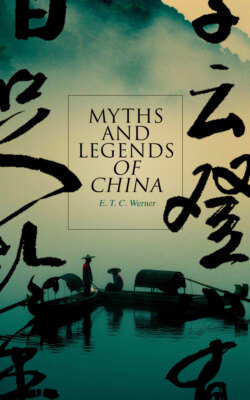Читать книгу Myths and Legends of China - E. T. C. Werner - Страница 20
На сайте Литреса книга снята с продажи.
Laws
ОглавлениеChinese law, like primitive law generally, was not instituted in order to ensure justice between man and man; its object was to enforce subordination of the ruled to the ruler. The laws were punitive and vindictive rather than reformatory or remedial, criminal rather than civil. Punishments were cruel: branding, cutting off the nose, the legs at the knees, castration, and death, the latter not necessarily, or indeed ordinarily, for taking life. They included in some cases punishment of the family, the clan, and the neighbours of the offender. The lex talionis was in full force.
Nevertheless, in spite of the harsh nature of the punishments, possibly adapted, more or less, to a harsh state of society, though the "proper end of punishments"—to "make an end of punishing"—was missed, the Chinese evolved a series of excellent legal codes. This series began with the revision of King Mu's Punishments in 950 B.C., the first regular code being issued in 650 B.C., and ended with the well-known Ta Ch'ing lü li (Laws and Statutes of the Great Ch'ing Dynasty), issued in A.D. 1647. Of these codes the great exemplar was the Law Classic drawn up by Li K'uei (Li K'uei fa ching), a statesman in the service of the first ruler of the Wei State, in the fourth century B.C. The Ta Ch'ing lü li has been highly praised by competent judges. Originally it sanctioned only two kinds of punishment, death and flogging, but others were in use, and the barbarous ling ch'ih, 'lingering death' or 'slicing to pieces,' invented about A.D. 1000 and abolished in 1905, was inflicted for high treason, parricide, on women who killed their husbands, and murderers of three persons of one family. In fact, until some first-hand knowledge of Western systems and procedure was obtained, the vindictive as opposed to the reformatory idea of punishments continued to obtain in China down to quite recent years, and has not yet entirely disappeared. Though the crueller forms of punishment had been legally abolished, they continued to be used in many parts. Having been joint judge at Chinese trials at which, in spite of my protests, prisoners were hung up by their thumbs and made to kneel on chains in order to extort confession (without which no accused person could be punished), I can testify that the true meaning of the "proper end of punishments" had no more entered into the Chinese mind at the close of the monarchical régime than it had 4000 years before.
As a result of the reform movement into which China was forced as an alternative to foreign domination toward the end of the Manchu Period, but chiefly owing to the bait held out by Western Powers, that extraterritoriality would be abolished when China had reformed her judicial system, a new Provisional Criminal Code was published. It substituted death by hanging or strangulation for decapitation, and imprisonment for various lengths of time for bambooing. It was adopted in large measure by the Republican régime, and is the chief legal instrument in use at the present time. But close examination reveals the fact that it is almost an exact copy of the Japanese penal code, which in turn was modelled upon that of Germany. It is, in fact, a Western code imitated, and as it stands is quite out of harmony with present conditions in China. It will have to be modified and recast to be a suitable, just, and practicable national legal instrument for the Chinese people. Moreover, it is frequently overridden in a high-handed manner by the police, who often keep a person acquitted by the Courts of Justice in custody until they have 'squeezed' him of all they can hope to get out of him. And it is noteworthy that, though provision was made in the Draft Code for trial by jury, this provision never went into effect; and the slavish imitation of alien methods is shown by the curiously inconsistent reason given—that "the fact that jury trials have been abolished in Japan is indicative of the inadvisability of transplanting this Western institution into China!"
